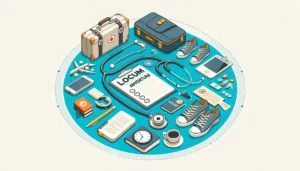In an ever-evolving medical landscape, locum tenens has become an attractive alternative to traditional employment models. Yet, as with any divergent path, it is shrouded in myths and misconceptions. These often stem from outdated beliefs, lack of information, or fear of the unknown. This post seeks to debunk some of the most prevalent myths surrounding locum tenens, offering clarity and perspective.
Myth 1: The Instability of Work
One of the most commonly held beliefs is that locum tenens offers an unstable work environment with no guarantees of consistent shifts or income. This perception might stem from the fact that locum tenens offers short-term placements by its very nature.
Reality: In the current healthcare climate, there is an overwhelming demand for doctors in various specialties and geographical locations. This demand is so pronounced that physicians can effectively cherry-pick their assignments. With many opportunities available, locum tenens can offer consistent work, with many doctors scheduling themselves back-to-back if they choose. Instead of instability, locum tenens provide flexibility, allowing physicians to decide when, where, and how they usually wish to work.

In addition, hospital and department contracts change hands regularly. The hospital you work at currently may be overtaken, bought, or go under due to bankruptcy. Having 2-to three locum gigs at any given time allows you the flexibility and agility to work elsewhere if one of your jobs dries up. This way, you diversify risk instead of being employed, where you consolidate your risk and bet that the site you work at won’t be sold to the next CMG.
Myth 2: Only Inexperienced or “Bad” Doctors Work Locums
Another widespread myth is that locum tenens is the last resort for inexperienced doctors or those who can’t secure a permanent position due to some professional shortcomings.
Reality: While locum tenens might have once been the fallback for a minority of physicians, the narrative has significantly changed. Today, doctors from all walks of life, fresh graduates or seasoned professionals, are choosing locum tenens. The motivations are varied—from seeking a varied work experience and desiring more control over their schedule to even financial incentives. The caliber of doctors working locum tenens now spans the entire spectrum, with many experienced and highly regarded physicians choosing this pathway for its myriad benefits.
Myth 3: Traditional Employment is More Lucrative Due to Incentives
A persistent myth is the allure of financial incentives that traditional employment models offer, especially when repaying hefty student loans. Many believe that the bonuses, benefits, and structured pay scales of permanent positions outweigh the earnings of locum tenens.
Reality: While permanent positions often have a structured pay package and potential bonuses, locum tenens offers financial advantages. Firstly, the hourly rates for locum tenens positions are typically higher than their permanent counterparts. Combining this with taking on multiple assignments and controlling the work volume can make earning potential substantial. Furthermore, doctors can negotiate terms that suit them best without being tied to a single institution’s pay scale or hierarchy.
Moreover, the increased earnings from locum tenens can be channeled efficiently to repay student loans. Alternatively, the surplus can be invested wisely to further amplify one’s financial gains. When one does the math, the earnings from locum tenens, combined with strategic financial planning, can often surpass what’s achievable in a traditional employed role.

Conclusion
As the medical profession adapts to changing dynamics, it’s crucial to separate fact from fiction, especially when considering career paths. Locum tenens, with its promise of flexibility, autonomy, and financial benefits, is an avenue worth exploring for many physicians. While it may not be the perfect fit for everyone, making informed decisions based on reality rather than outdated or unfounded myths is essential.
Navigating the world of medicine is challenging enough without being swayed by misconceptions. By debunking these myths, we hope to shed light on the true nature and potential of locum tenens, enabling physicians to make choices that align with their personal and professional aspirations.




